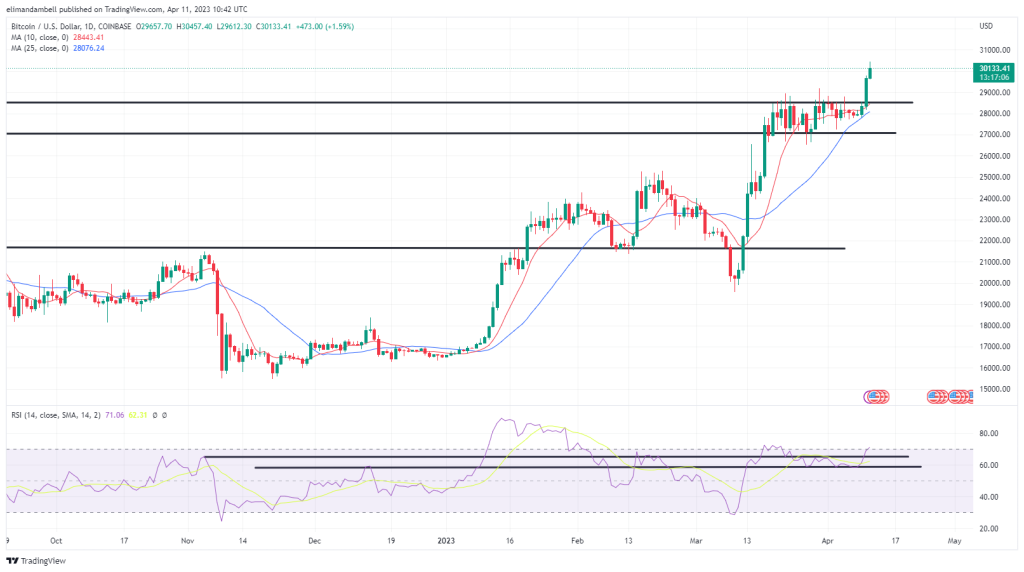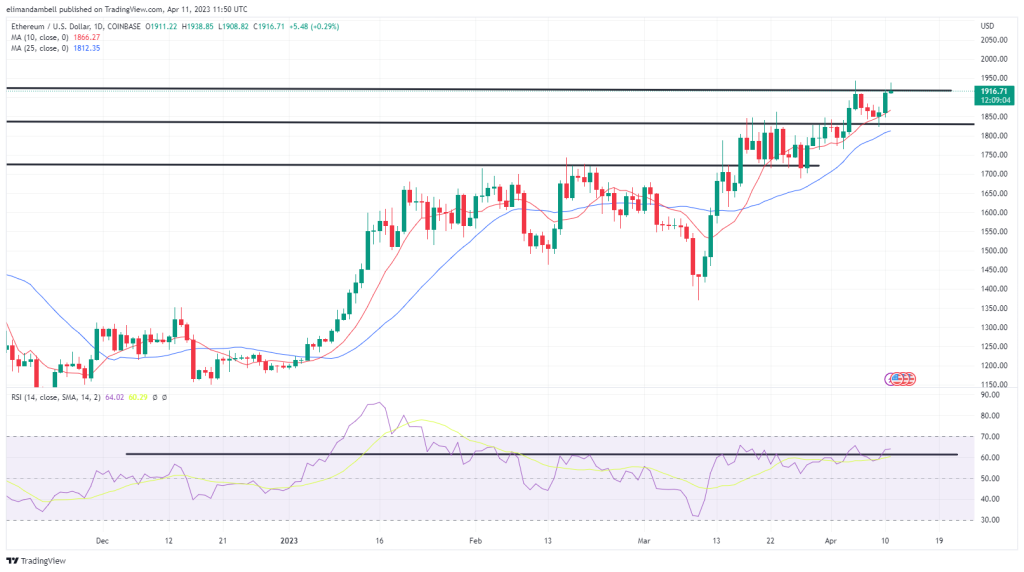
Bitcoin moved above $30,000 on April 11, as bullish sentiment returned to cryptocurrency markets. Markets surged after data in China showed that consumer prices had hit an 18-month low. Ethereum was also higher on the news, moving closer to $2,000.
Bitcoin
Bitcoin (BTC) raced above $30,000 for the first time in ten months, as markets reacted to the latest inflation data from China.
Consumer prices in China rose by 0.7% in March, which is the slowest increase since September 2021.
Following a low of $28,189.27 to start the week, BTC/USD raced to an intraday high of $30,160.48 earlier today.

This move saw bitcoin climb to its strongest point since June 9, and comes as the 10-day (red) moving average avoided a downward cross with its 24-day (blue) counterpart.
In addition to this, the relative strength index (RSI) moved above a key resistance point of 68.00, and is currently tracking at 71.05.
The next visible ceiling appears to be at the 73.00 mark, and as a result, bulls may begin to secure profits, slowly vacating earlier positions.
Ethereum
Ethereum (ETH) was also back in the green on Tuesday, with prices once again trading above $1,900.
ETH/USD hit a peak of $1,936.73 earlier in today’s session, less than 24 hours after trading at a low of $1,848.16.
As a result of Tuesday’s surge in price, the world’s second largest cryptocurrency neared its highest point since last August.
Looking at the chart, today’s move coincided with the RSI breaking out of a ceiling at the 61.00 mark.

At the time of writing, price strength is at a reading of 64.04, with an upcoming resistance point at 65.00.
Should ETH move beyond this point, there is a good chance that ETH will move back above $2,000.
Register your email here to get weekly price analysis updates sent to your inbox:
Will ethereum move to $2,000 this week? Leave your thoughts in the comments below.
Image Credits: Shutterstock, Pixabay, Wiki Commons
Disclaimer: This article is for informational purposes only. It is not a direct offer or solicitation of an offer to buy or sell, or a recommendation or endorsement of any products, services, or companies. Bitcoin.com does not provide investment, tax, legal, or accounting advice. Neither the company nor the author is responsible, directly or indirectly, for any damage or loss caused or alleged to be caused by or in connection with the use of or reliance on any content, goods or services mentioned in this article.










